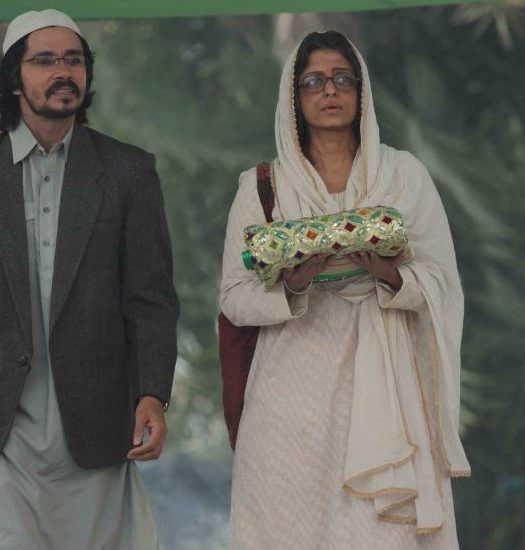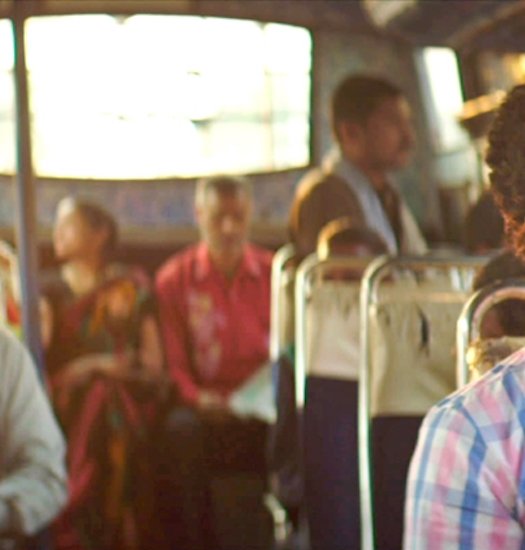Idea was to keep the soul of the original movie intact: Samit Kakkad
Sharing his journey on the playground of a city he has been bought up in, Samit Kakkad talks about what it was like to re-tell the tale of two siblings belonging to the lowest strata of the society. As the film, which is a remake of the National award-winning Tamil film Kakka Muttai and its team brace itself for a release on July 22, the director unfolds the challenges, discoveries and preferences of storytelling, in the context of Half Ticket.

Samit Kakkad
Half Ticket is a remake of a south Indian film. What inspired you to take on the challenge to make the film in Marathi?
When I saw Kakka Muttai, I was really moved. I thought it was a very universal story, and that it was really suited to Bombay. I mean, we live in a city where the rich and the poor are immediate neighbours. Sixty percent of our population lives in the slums. So when the producer called me to make the film, my immediate reaction was, “Okay, let’s do it!”
We had to audition close to 500 kids to get the cast right
Did you feel any pressure to live up to the success of the original film?
Absolutely. In fact, I still feel the pressure. First of all, that film (Kakka Muttai) is a National award-winning film. It was short of just one vote to become our official entry to the Oscars. So the pressure was immense. But that pressure sort of worked for us. We really worked hard on the film. I am from Mumbai, I’ve been born and bought up here and yet I took around two months for the recce. The slum that we show in the film, if you see the trailers, is a sea-facing slum. It has never been shown before in cinema. Apart from that, if you see the boys, we had to audition close to 500 kids to get the cast right. I remember sitting with the DOP for hours, trying to figure out the right day, right place, and at times even the right time to design my shots in a certain way. All this could happen only because there was always a pressure to make a film as good as the original, or better.
READ: HALF TICKET TO RELEASE ACROSS INDIA ON JULY 22
The fact that the film is a remake is sort of a guideline and a reference. But sometimes, it can become a restriction, and you tend to lose your creative freedom. How did you find a balance?
I don’t think you lose the creative freedom. Because at the end of the day, it is a new film, it’s different. I have shown my film to a lot of people who have seen Kakka Muttai, and they have told me that my film is different. We in fact, chose a different name for it altogether. The idea was to remain true to the soul of the film. The exterior can change but you obviously can’t change the crux because then there is no point of a remake, of having or acquiring the rights of a film. Apart from that though, it is a new film in itself.
You obviously can’t change the crux because then there is no point of a remake

Half Ticket Poster
Mumbai seems to a be a character of the film. Was that a conscious choice?
It was. That was the first thing we thought of. The idea was to portray Mumbai as a character in itself and to open it up as a playground for the two boys. We chose all our locations accordingly, be it the places from old Mumbai, be it the slums of Koyla bandar, be it the ship breaking yards, everything is set to add to the film. That was important for me because something like this takes your film to another level, making a much more cinematic experience.
The idea was to portray Mumbai as a character in itself
What was your biggest challenge while shooting this film?
There were quite a few challenges. The first was that this is an official remake. The second challenge, I think, were the boys. Because my entire film is about the two of them. The duo in Kakka Muttai was so good, we had to be at least as good. And you have to understand that they are kids. And it was difficult to shoot in the place we were shooting, because after all it was a slum. We ourselves are not used to the place, so for the kids it was even more difficult. Plus, eighty percent of the film was outdoor and had to be shot barefoot, so that was another challenge for them.
The most important challenge however was to get them to behave like siblings. One trick that I used to achieve that was to have them stay together. It helped them get friendly with each other and over time their reactions to each other became very sibling like. So that really helped the film.
READ: VEES MHANJE VEES – BRINGING RURAL EDUCATION INTO THE SPOTLIGHT
How did Video Palace come on board and how did your collaboration with the producer’s initiate?
My last film, Aayna Ka Bayna, was where the collaboration began. Nanu Bhai (Nanu Jaisinghani, Producer) had bought the home video rights for that film, although I know him from much before that. We stay really close and meet often. He is like an elder brother to me and when he called and told me that he had bought the rights for Kakka Muttai and wanted me to do it, I more than happily agreed. The very next day I had my crew in his office and we started working.
The most important challenge however was to get them to behave like siblings

Still from Half Ticket
Tell us something about the music of the film.
Like I told you before, the idea was to keep the soul of the original movie intact. And the music was a step towards that also. What we did was that we retained the original music of the film. Only the lyrics were changed to Marathi, but the composition and tunes of all the three songs, done by GV Prakash, have been kept the same.
READ: 7 KEY TIPS FOR MUSICIANS BEFORE CHOOSING A FILM
The film, from the trailers, seems to have minimal dialogues. Is that a tool you chose to use purposefully?
I like minimal dialogues. I am personally not very fond of talkies, neither do I like repetition. There are lines in the film of course, but they are to the point, just to communicate what’s necessary. Also I feel we are in the age of mature audiences, who are exposed to a lot of world cinema, and they enjoy this language more. And for me too, the language of a film has to be visual. Especially for a film like this, which is such a simple story and requires to be simply told.
The language of a film has to be visual
Why, according to you, should the audience go and watch Half Ticket?
The audience should come watch the film to relive their childhood. The film is all about desire and everybody has that one thing, they have always wanted. (smiles)



